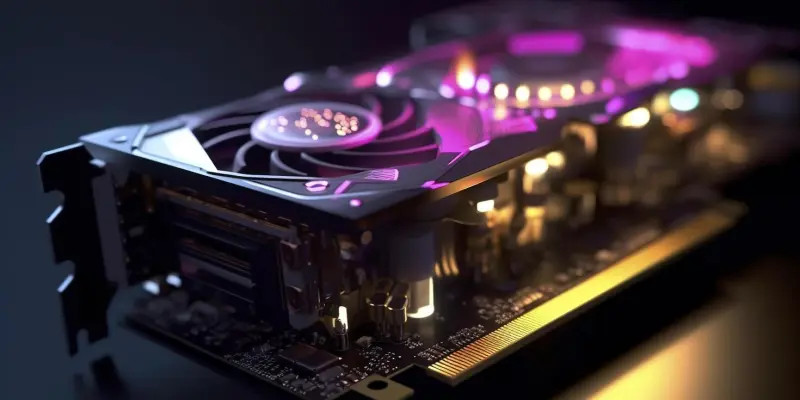The GPU market in Germany presents intriguing dynamics and competition, particularly revolving around AMD’s Radeon RX 9070 XT and NVIDIA’s RTX 50 series. Currently, the AMD Radeon RX 9070 XT is a prominent player, achieving impressive sales figures by moving over 350 units in a single week, according to Mindfactory, a leading German retailer. This standout performance can be largely attributed to the GPU’s competitive pricing and limited direct competition. Compared to NVIDIA’s RTX 5070 Ti, the RX 9070 XT offers better value, which is a significant factor in a market where financial considerations heavily influence purchasing decisions. Examining market trends and consumer preferences further illuminates AMD’s current advantage over its rivals, emphasizing the importance of features like VRAM capacity in the evolving landscape.
Consumer Preferences and VRAM Trends
One notable trend in the German GPU market is the growing consumer preference for models with higher VRAM capacity. This shift is exemplified by the RTX 5060 Ti 16GB, which has seen significantly better sales than its 8GB counterpart. The lower VRAM version barely moved 10 units, underscoring the consumer move away from GPUs offering limited memory. This trend signifies an increased prioritization of long-term usability and performance. As consumer applications become more graphics-intensive, buyers are leaning towards GPUs that promise longevity and efficiency in handling demanding tasks. Meanwhile, Intel’s ARC GPUs, namely the B570 and B580 models, have also overtaken RTX 4060 Ti sales, highlighting the weight VRAM capacity carries in purchasing decisions. This heightened focus on VRAM is shaping the market landscape, influencing both product offerings and consumer buying patterns significantly.
AMD’s Strategy and Market Dominance
AMD’s success in Germany is anchored by its focus on providing cost-effective solutions for consumers. The RX 7800 XT stands out as a budget-friendly option from the previous generation, continuing to attract interest. This approach resonates with the broader consumer trend that prioritizes cost efficiency and extended support for technological advances. By emphasizing these values, AMD holds strong against competitors like NVIDIA, which is currently attempting to reclaim market presence. A notable market trend is the decline of 8GB graphics cards in favor of more powerful hardware, reflecting consumer demands for stronger performance. AMD’s skill in aligning with consumer expectations and ensuring performance smarts is key to its market position. By championing GPUs that balance affordability and advanced features, AMD caters to Germany’s evolving market. Globally, AMD’s dominance highlights how strategic pricing and technological alignment can influence competitive outcomes. Understanding these dynamics offers vital lessons for the global tech industry.

